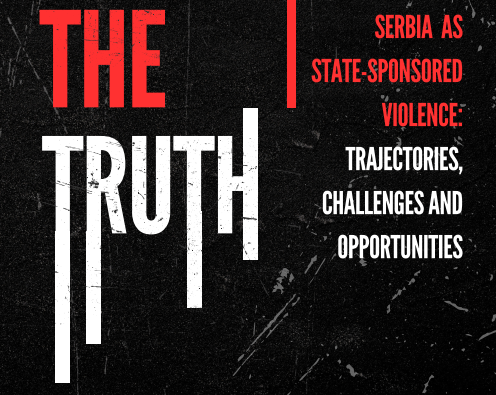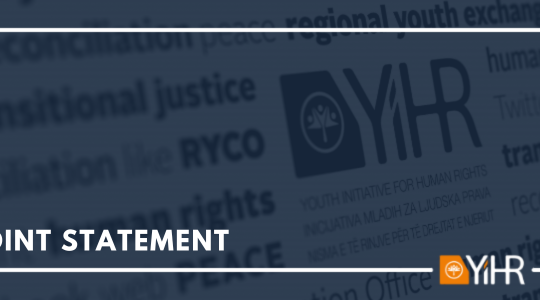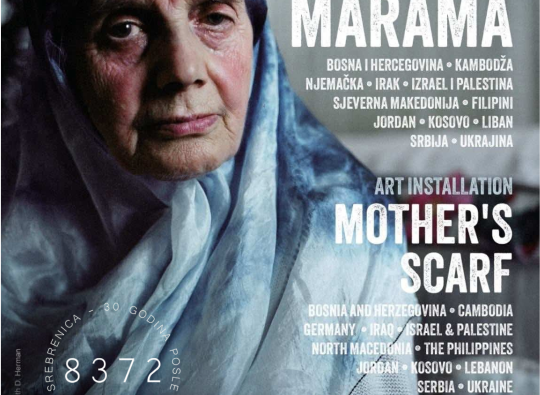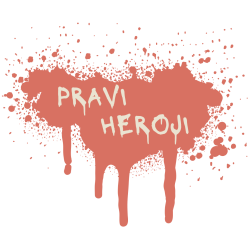This way, we publicly call on the President of the Government, Ana Brnabić, the President of the Republic Aleksandar Vučić, as well as all representatives in the National Assembly, to express their respect for the victims of the Srebrenica genocide with their presence and burning of candles.
The Initiative expresses its disapproval of the continuity of the silence of the political elite on the responsibility of Serbia for war crimes, in particular the Srebrenica genocide, for which the state was declared responsible for failing to prevent genocide and to punish or extradite to the Tribunal perpetrators of that crime, and first of all, general of Army of Republika Srpska (VRS) Ratko Mladić according to the judgement of the International Court of Justice in 2007.
This year there is no mention about a possible visit of Serbian state officials to the Memorial Center in Potočari, while in the last two years we have witnessed the support of political elites for those convicted of war crimes in Serbia, about which the Initiative reacted earlier and informed the public – from discussions with Momcilo Krajišnik, Nikola Šainović and Veselin Šljivančanin, lectures by Vladimir Lazarevic at the Military Academy, through Vinko Pandurević’s participation on the round table within the internal dialogue on Kosovo to the continued stay of convicted war criminal Vojislav Šešelj in the National Assembly of Serbia contrary to Serbia’s law.
Also, at the trial of eight members of the Ministry of Internal Affairs of Republika Srpska for the killing of 1,300 civilians in Kravica in July 1995 before the War Crimes Chamber of the High Court in Belgrade, the main trial has not been held after a year, and the overall case shows a poor practice of the Prosecution. Similarly, in other cases (Skočić case) the insufficiently substantiated indictments, most often result in acquittal verdicts before the Court.
In November last year, Ratko Mladić was sentenced to life imprisonment for genocide in Srebrenica, as well as crimes against humanity and violations of the laws and customs of war that Serb forces committed during the war in Bosnia-Herzegovina.
After the verdict, the President of the Government Ana Brnabić, stated that “the past should be left behind and we should look to the future”, while in a similar tone the President of the Republic Aleksandar Vučić said “not to stifle the tears of the past.” Minister of Justice, Nela Kuburović, went one step further, openly defaming the Tribunal with the statement that “the Mladić judgment was expected, having in mind the previous verdicts of the Hague Tribunal against the Serbs”.
The Initiative considers that without a clarified war past there can be no bright future for Serbian citizens. Respect for the victims of genocide in Srebrenica by government representatives must be the basis of – not just the declarative – but the proactive policy of peace and stability of the state of Serbia. The opportunity to demonstrate true determination for peace policy, the Serbian authorities will have on Wednesday, on July the 11th at 20:00, by joining the citizens of Serbia at the commemorative gathering for the victims of genocide in Srebrenica. As in the previous years, we have requested from Serbia’s executive, judicial and legislative authorities the following:
- Adoption of a National Assembly declaration, which will adequately address the genocide committed in Srebrenica, as well as the status of victims of this genocide;
- Declaring the 11th of July the Day of Remembrance of Victims of Genocide in Srebrenica;
- Efficient prosecution of war crimes at the Supreme War Crimes Chamber;
- Respect for and appreciation of the judgments of domestic and international courts that determine the facts and responsibilities regarding war in the former Yugoslavia;
- Stopping the promotion and glorification of convicted war criminals at political gatherings, state festivals and the Military Academy;
- Full implementation of the National Strategy for War Crimes Prosecution for the period 2016 to 2020, especially in the field of curriculum improvement – that is to say that schools are beginning to learn about crimes based on established facts;
- Undeniable public and political support for the constitution of Regional Commission for establish the facts about war crimes and other human rights violations committed during the conflict in the former Yugoslavia between 1991 and 2001. – RECOM.











